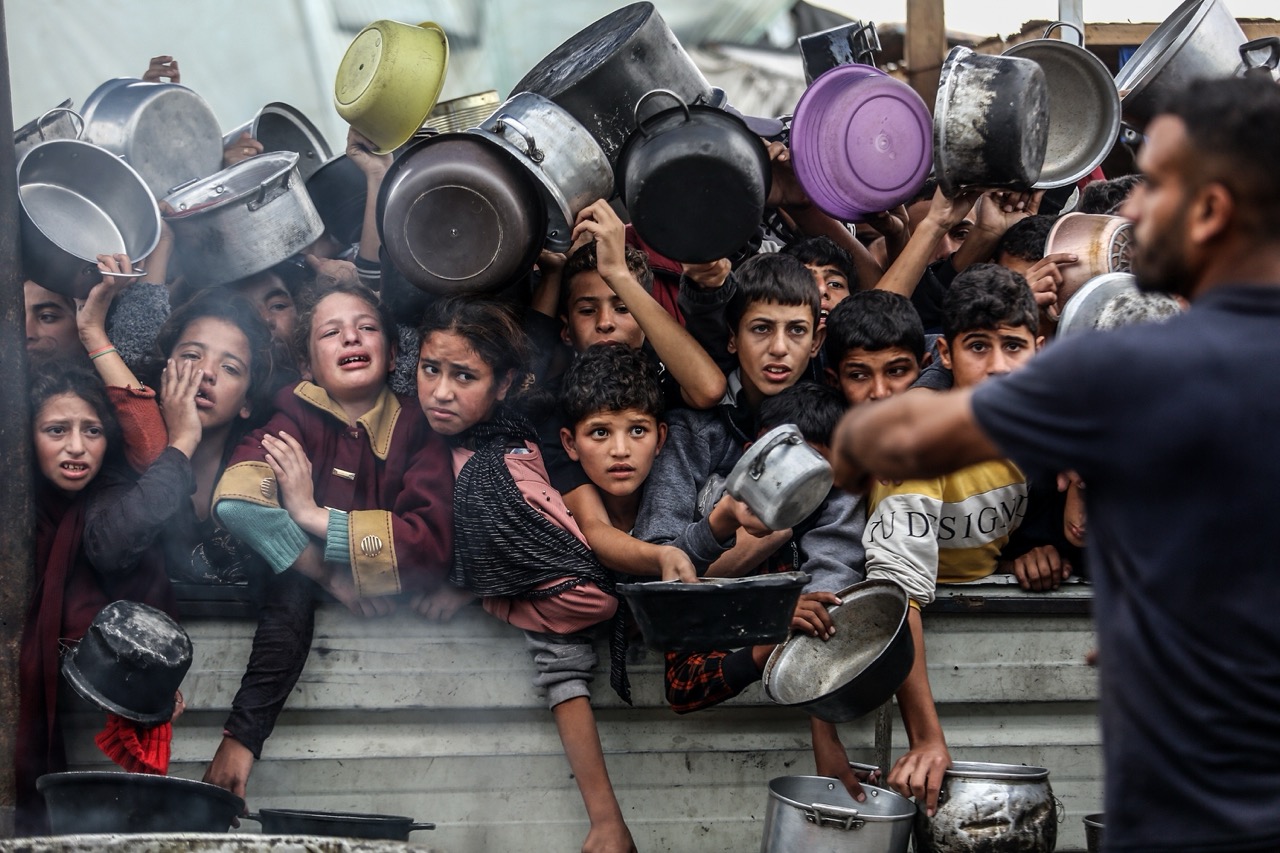A world on the brink of hunger: Why G20 action cannot wait
The leaders of the G20 members will meet in Johannesburg under the banner of ‘Solidarity, Equality, Sustainability’ – the motto unfurled by South Africa to reflect its priorities when it assumed the G20 presidency for 2025. It is vital for all those whose lives are blighted by hunger that global leaders live up to its promise.
Today, food insecurity is spreading faster than our ability to respond, fuelled by escalating conflicts, more frequent natural disasters and widespread economic upheaval.
According to the latest Global Report on Food Crises, 295 million people are facing crisis or worse levels of hunger – they have no idea when, or if, they will eat again.
Even more shocking is that, for the first time, famine has been confirmed in two different parts of the world at the same time – in Gaza and Sudan. This has never happened before in the history of the Integrated Food Security Phase Classification, or IPC, monitoring system.
Cutting vital lifelines
Our collective failure to hold back the rising tide of global hunger must end. Yet just when millions are in dire need of life-saving humanitarian assistance, a severe funding crunch is putting unprecedented pressure on the global system that exists to provide it.
At my organisation, the World Food Programme, our projected budget for 2025 is down by more than 30% of last year’s $9.77 billion total. But we have identified food assistance needs of more than $15 billion this year. The funding crunch that WFP is experiencing means many will not receive the help they urgently need – a pattern being repeated throughout the United Nations system and the wider humanitarian sector.
The decision by many donor countries to reduce overseas aid spending and redirect budgets to domestic priorities is having profound consequences for the neediest.
Reduced aid is reshaping humanitarian operations, worsening food insecurity and affecting lower-income countries dependent on aid.
Funding cuts have forced WFP and partners to retreat from front-line areas, shutter field offices serving vulnerable communities and reduce rations, leaving millions without assistance and weakening systems of preparedness and resilience that provide cushions against future shocks. These painful decisions are having real-world impacts.
In Afghanistan, one of the world’s poorest countries, the proportion of people in need who were reached with assistance fell to just 4% in mid-2025.
In Uganda, over one million refugees are no longer receiving critical assistance in 2025, while those still receiving support have seen rations slashed to as little as 20% of standard nutritional requirements.
In Haiti, for the first time since 2016, no dedicated contingency stocks of food and other essential humanitarian supplies have been put in place during the peak of this year’s hurricane season.
Meanwhile, WFP’s internal analysis has found that the cuts to rations and distribution lists that funding pressures are forcing us to implement will drive millions deeper into hunger.
Our projections show that up to 13.7 million people could slide from IPC Phase 3, acute hunger, into Phase 4, emergency hunger. At this stage, families face large gaps in their food consumption and must resort to extreme coping strategies, such as selling their remaining possessions, to stave off starvation.
Impossible choices in a system under strain
WFP’s frontline teams are routinely having to weigh trade-offs between reaching fewer people with more urgent needs or stretching assistance more thinly among people with low levels of food insecurity. In other places, they are having to choose between equally vulnerable communities to determine which ones they are going to assist.
Impossible decisions such as these are fraying the bonds of trust between humanitarian agencies and the communities they support, as more and more families are having vital lifelines cut.
The damage does not stop here. The devastating harm inflicted by cuts to food assistance not only threatens lives, but also risks undermining stability, fuelling displacement, and stoking wider social and economic upheaval.
We know that swift and effective food assistance programmes are a vital bulwark against chaos in countries already struggling to cope, so prioritising these lifelines is a sound investment as well as a symbol of solidarity.
The G20 Johannesburg Summit is an important opportunity to commit the resources that are urgently needed to halt the rising tide of global hunger. The world’s richest countries must not let it go to waste.












